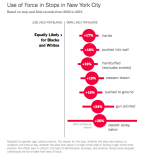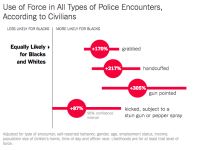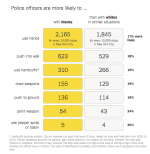For example, gun ownership is 16 times as high in the US compared to, say, the UK (112.6 guns per hundred persons in the former, 6.6 in the latter) and overall death rate per head of population from guns is a whopping 50 times as high in the US than in the UK, I read (10.2 per 100,000 as against 0.2). So the situation US Police face seems to be far more dangerous, because their suspects are much more likely to be armed and/or use a weapon, it seems, and I believe the number of police fatalities in the line of duty in the US is about 3 times higher than the UK (per policeperson), so a US Policeperson may be justified, to some extent, in reacting in a more self-protective way, I'm thinking.



